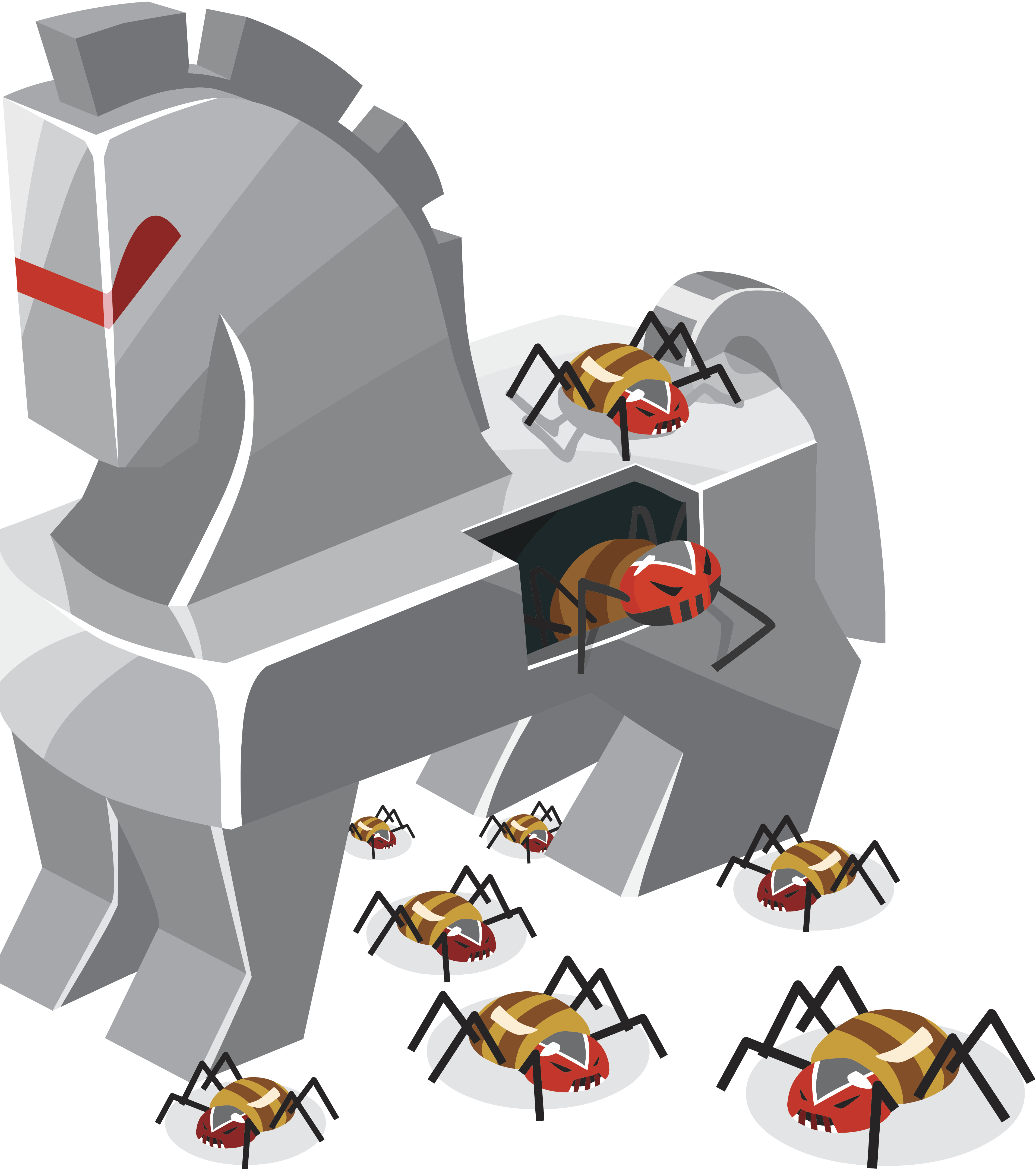Homer and the Roman poet Virgil wrote about the fall of Troy and the horse, though they didn't explain why the Trojans fell for the trick.
In the Aeneid, Prince Aeneas tells us that his fellow Trojans went out of the city to examine the deserted Greek encampment and found this enormous wooden horse. Was it a gift? Was it something of value that they just didn't want to haul back home? They did not know it was filled with Greek soldiers. The Trojans were split on what to do with the horse but, at the urging of Thymoetes, they brought the horse into the city.
In Virgil's Aeneid, Book II[7] (trans. A. S. Kline), he tells this:
After many years have slipped by, the leaders of the Greeks,
opposed by the Fates, and damaged by the war,
build a horse of mountainous size, through Pallas's divine art,
and weave planks of fir over its ribs:
they pretend it's a votive offering: this rumour spreads.
They secretly hide a picked body of men, chosen by lot,
there, in the dark body, filling the belly and the huge
cavernous insides with armed warriors.
Our modern day version of a Trojan horse is usually a malicious computer program which tricks users into willingly running allowing it into their computer or device. This "Trojan horse" (or sometimes simply a "Trojan") is not like a computer virus or worm. Trojans generally do not attempt to inject themselves into other files or otherwise propagate themselves. And the worse part is that the victim allowed the attack to occur.
I suppose our modern Trojans are a form of social engineering, as was the Greek version in that the victims were duped. Today, it might come from opening an email attachment or link that looks friendly or tempts us with a gift or great offer.



